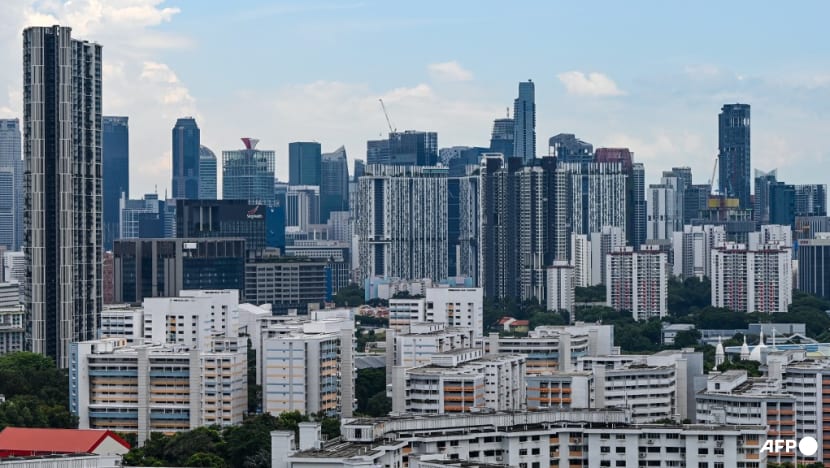Interest rate for GST refunds determined by banks’ average prime lending rate: Chee Hong Tat
Speaking in parliament, the Transport Minister and Second Minister for Finance also said the six agencies that had wrongly levied GST on some of their fees “should be able to refund the vast majority of the affected taxpayers”.

Singapore's skyline is seen from Mount Faber on Oct 25, 2023. (File photo: AFP/Roslan Rahman)

This audio is generated by an AI tool.
SINGAPORE: The interest rate set for the government refunds of wrongly collected Goods and Services Tax (GST) was determined by the average prime lending rate offered by major financial institutions here.
This was made known by Transport Minister and Second Minister for Finance Chee Hong Tat in parliament on Monday (Feb 26), as he responded to a question from MP Lim Biow Chuan (PAP-Mountbatten) on how the interest rate was computed.
Earlier this month, the Finance Ministry said six government agencies had erroneously levied GST on 18 fees for regulatory services, ranging from application fees for professional licences to administrative fees for renting out public flats.
The government said it will refund the erroneously charged GST with interest of 5.5 per cent per annum.
Mr Chee noted that the interest rate is the “average prime lending rate” compiled by the Monetary Authority of Singapore from major banks and licensed finance companies.
According to the Association of Banks in Singapore, a prime rate is the lowest lending rate at which a bank is prepared to lend in Singapore dollars to its best customers on an overdraft or demand basis.
Prime rates are determined by banks based on their cost of funds, alongside a spread to cover credit risks, operating expenses and a desired return on shareholders’ funds, the association’s website said.
The error was first uncovered last November during an internal review conducted by the Ministry of Finance (MOF).
GST is generally levied on government services. For example, fees for the use of public sports facilities or the rental of hawker stalls are subject to GST. However, it should not be charged for services that are regulatory in nature.
At the moment, government agencies, like businesses, get to assess and decide whether or not to impose GST on their fees based on broad principles and guidelines set out by MOF. In this case, the six agencies had wrongly determined their fees as taxable provisions of services, the ministry said.
The agencies in question are the Housing and Development Board (HDB), Land Transport Authority, Urban Redevelopment Authority, Singapore Food Agency, Office of the Public Guardian and Council for Estate Agencies.
HDB alone accounted for more than 70 per cent of the 200,000 erroneous charges each year.
The amount of GST wrongly charged to individuals and non-GST-registered businesses was about S$1.5 million (US$1.1 million) a year.
Mr Chee said the government’s refund “will minimally cover transactions” since Jan 1, 2019, as all GST-registered entities in Singapore are required by law to keep records for up to five years.
“Where records and updated banking details are available, agencies will proactively and automatically credit the refunds to individuals and affected businesses. Otherwise, agencies will contact taxpayers to provide or update such information before refunds are (made),” he said, adding that those who are not contacted by Jun 30 can contact the agencies seek refunds.
“In cases where the affected company has been dissolved, or the individual is deceased, agencies will make refunds to the official receiver and the executor administrator or public trustee, respectively.”
Mr Chee said the agencies “should be able to refund the vast majority of the affected taxpayers”.
“But if there are any unrefunded amounts, they will be considered part of the government’s GST collections and broader tax revenue used for nation-building purposes,” he told the House.
Addressing questions about whether solutions such as technology can help to prevent future occurrences of such errors, Mr Chee said this issue “did not arise from a lack of technology but from differences in the interpretation of law”.
Hence, the government intends to table a Bill “soon” to amend the GST Act such that it clarifies the GST treatment for such fees and prescribes a list of regulatory fees where GST should not be charged.
















